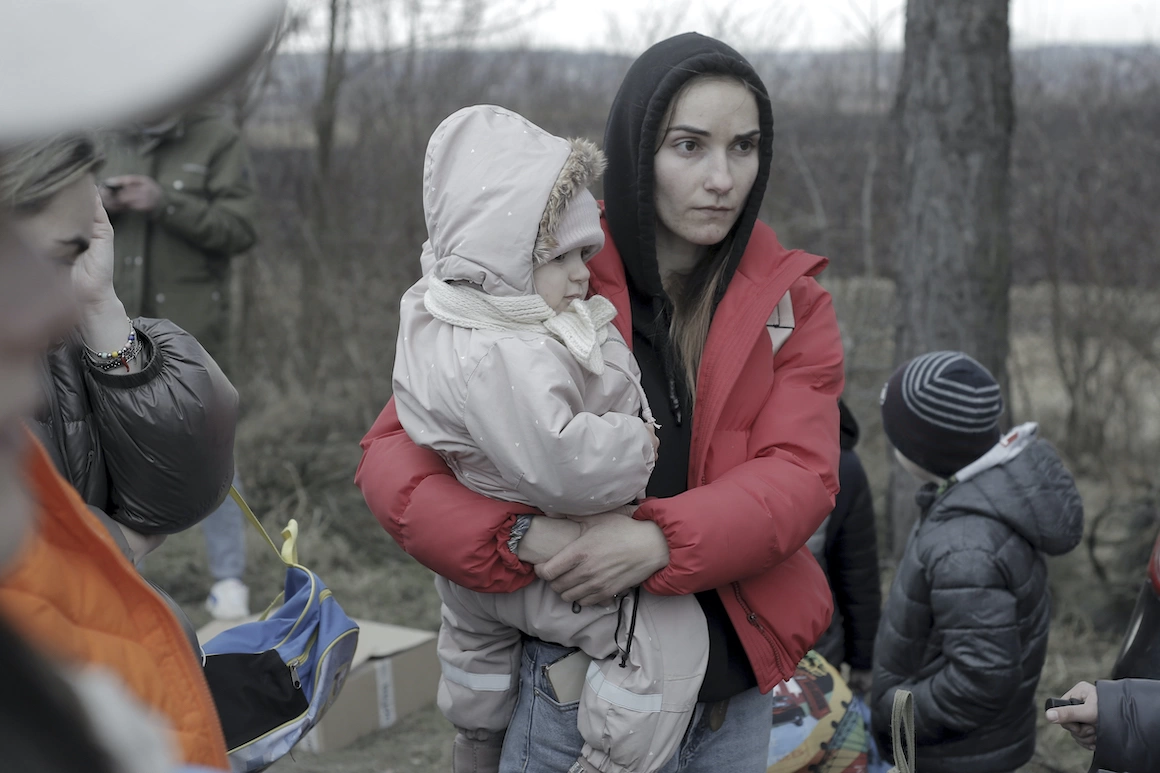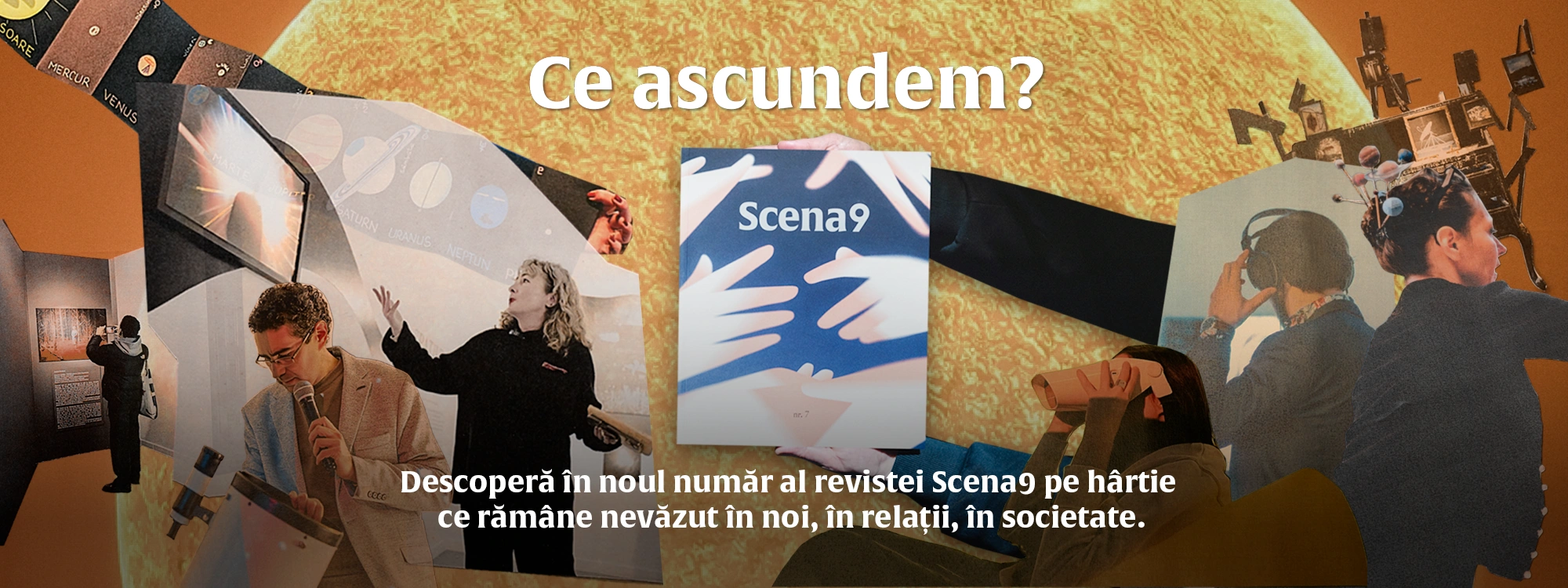There’s this image that’s kept repeating over the past few hours here, at the Siret customs checkpoint in northern Romania: Ukrainian families, most of them mothers and their children, are crossing the border, on foot or by car. They’re winding up surrounded by groups of volunteers who offer them sandwiches, water, food packages, diapers, prepaid SIM cards, and so on. At times like these, a lot of these people on the run from the war burst into tears.
“It’s been this way with almost all the people I’ve seen since last night,” says Vanessa, a university student from the nearest city, Suceava, who has come here as a volunteer. “We give them these food packs and they start weeping, as if only then they become aware of what’s been happening to them.”
And even for those who have come to the border to lend a helping hand, what goes on here is much too staggering. “Come on, take a deep breath, stop crying, and pull your weight,” I hear a young man tell another volunteer.
An elederly woman pulls down the window of a Ukrainian car, which is also carrying a few teenagers. She raises her fist and calls out, “Brava, Romania!”
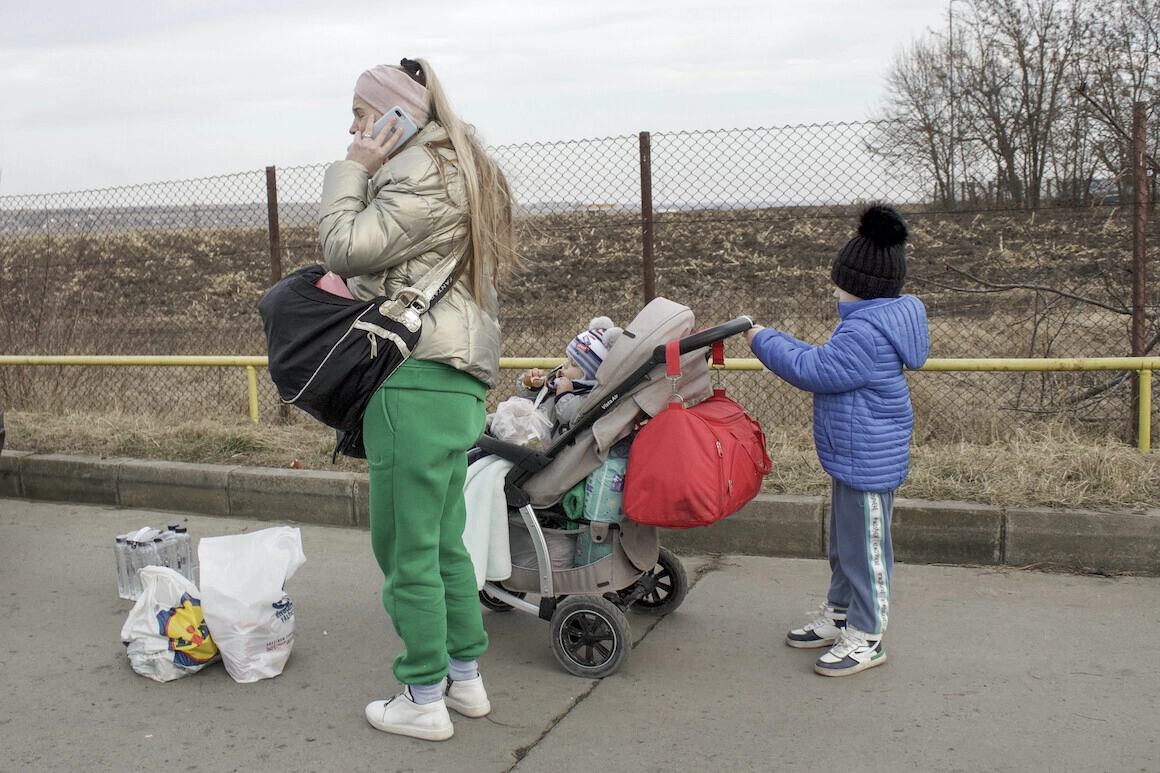
Every now and then, men can be spotted among the families who enter Romania. They are either older, or they’re residents of the EU or other countries. Men ages 18 to 60 are no longer allowed to leave the country after the institution of martial law.
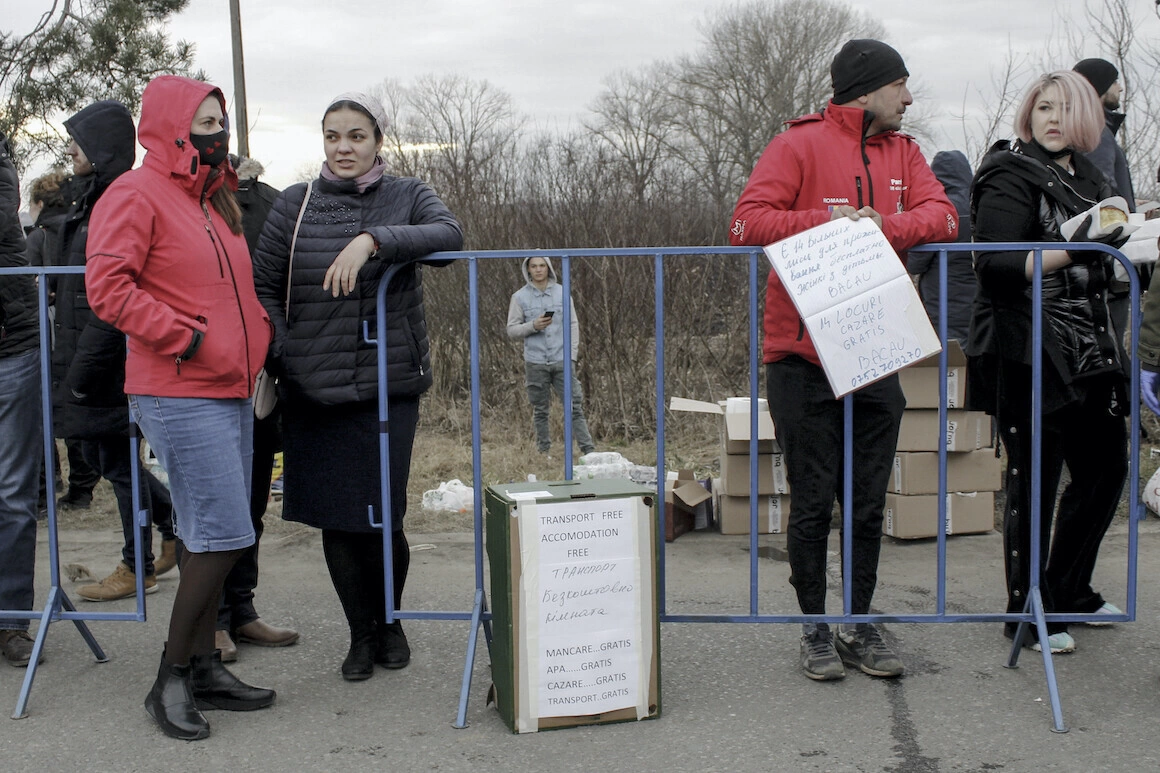
“You cannot imagine what it’s like on the other side,” says Lili, a Ukrainian woman who entered Romania on foot with her son. “Torn families, children crying for their fathers, women crying for their men, a disaster, a disaster.” Despite the madness around her, Lili is maintaining her calm and there’s even a tonic touch about the way she speaks–as if nothing could scare her. She’s trying to find transportation so that her son reaches Poland, where another relative is expecting him. “After I take care of the boy, I’m going back to Ukraine to also get my daughter, who’s in the car with my husband, pretty close to the border. They’ve been waiting there for 15 hours… And, to tell you the truth, our border guards are to blame for this, too, ‘cause they keep stalling us for really long spans of time.”
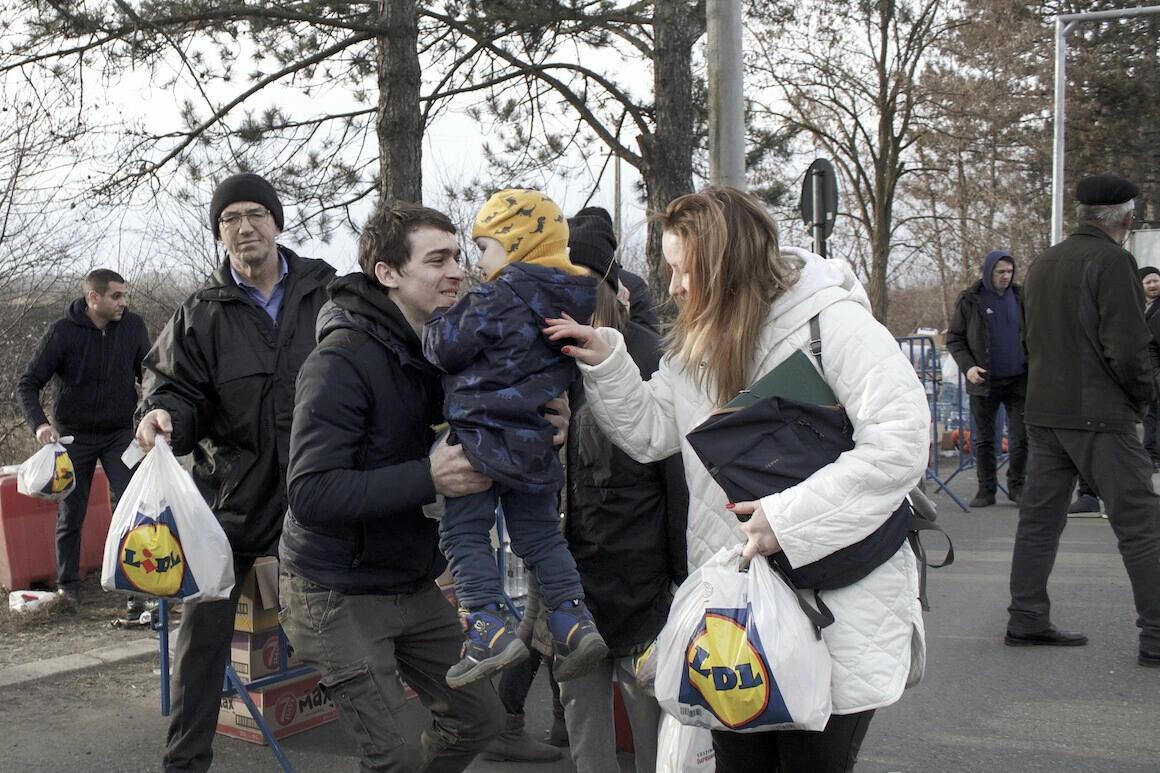
On both sides of the road, an increasing number of tables and cars with license plates from Romanian counties on the border are lining up. They’re all loaded with food, clothing, and hygiene products. Emergency Service firemen have also been mobilized to offer food and assistance, as have representatives of many organizations and churches. Priests from the Archbishopric of Suceava and Rădăuți are unloading boxes and sacks off the vans and accompanying refugees to the various cars and buses provided by different local transportation companies.
"It’s very important that several churches are gathered here, not just the Orthodox one. ‘Cause stuff like this doesn’t even matter anymore, at times like these. There are no differences being made anymore. We’re here to help together," says Costică, a Suceava-based priest. When he’s not jumping in to carry a box or welcome someone, Costică is on the phone calling various people around the country. “I’m sending you a family right now. Someone’s taking them to Suceava and then another car is taking them over from there,” he tells someone in Cluj over the phone. “I’m sending people out wherever I can: to Cluj, to Iași, wherever my acquaintances are.”
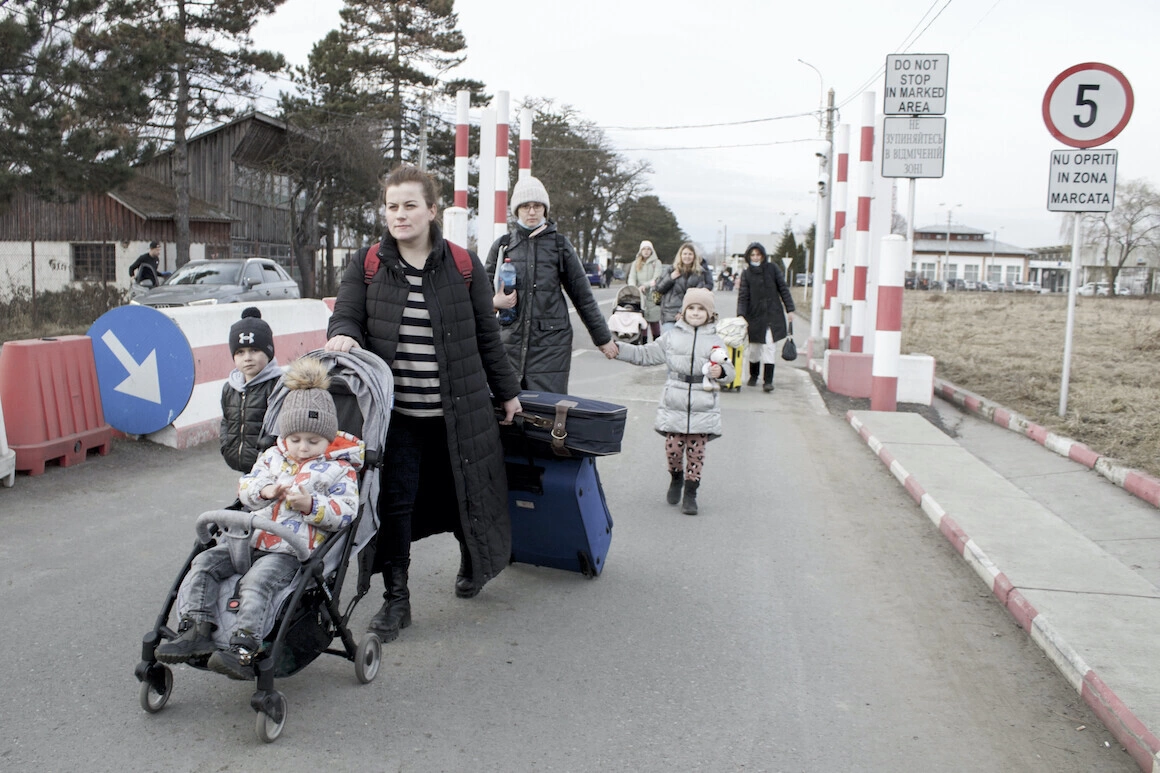
Two families from Ivano-Frankivsk, a Ukrainian city hit by a Russian rocket the other day, are also among those whom Costică has helped. Petrică, a Suceava driver, is going to take them to Timișoara on a bus, along with a hundred other people. They are expected there by members of the Ukrainian community.
“In Timișoara there’s going to be room and board for them, and those who want to leave for Italy will receive assistance,” Petrică the bus driver explains.
One of the mothers in this group gives her little boy a sandwich, turns to look at the field behind her, wipes her tears away, and says, “I hope we make it to Bologna. Or Rome.”
Several voices are complaining about the authorities moving too slowly and chaotically, as well as about them not intervening the night before, when those entering Romania through the Siret checkpoint were in need of a lot of help. Aside from this, there are no translators on the scene, which makes communicating with the Ukrainians all the more difficult. Luckily, some locals do speak Ukrainian and Russian and they’re running around, from one group to the next. Another option is speaking to the Ukrainians in Spanish or Italian, as does Dan–one of the volunteers from Botoșani, who has been here for twenty hours. “We do what we can and we find ways to understand each other.”
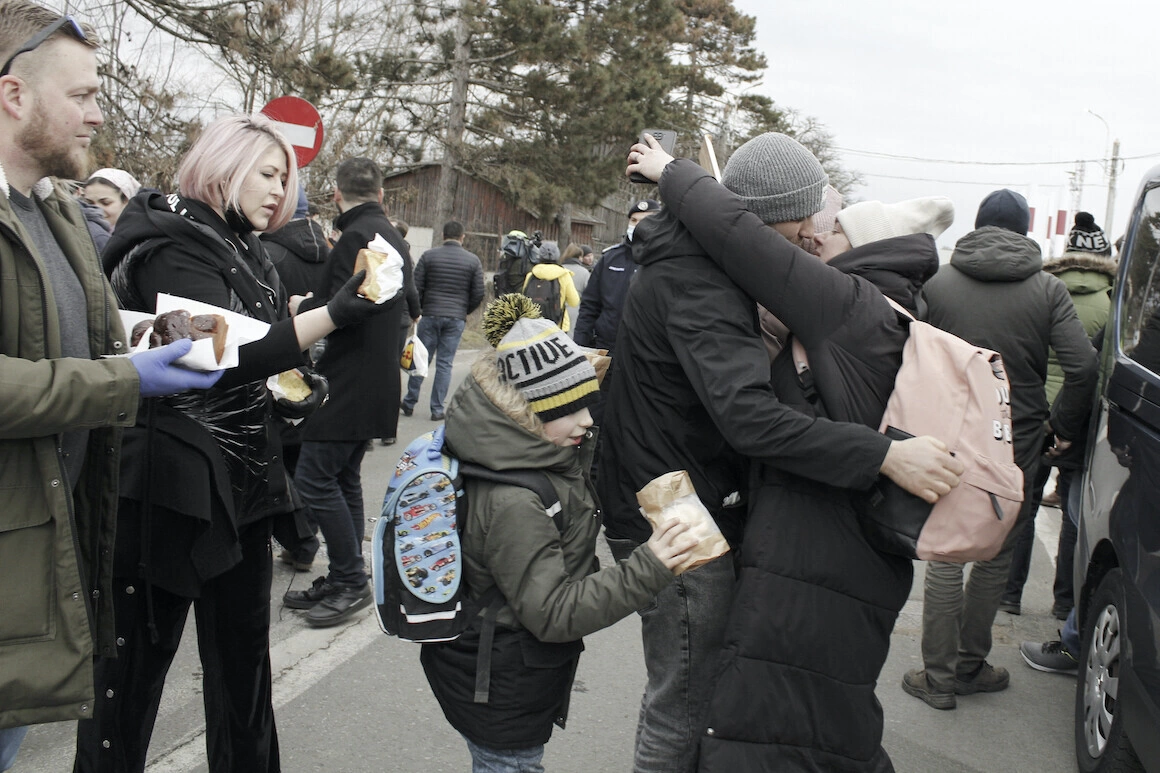
There are also cases in which some of the refugees get scared and refuse to get into the cars of people whom they don’t know. “When they hear about free transportation, some people get scared, because to them it seems hard to believe. And, in a way, it’s understandable, ‘cause they’re already terrified when they get here,” says one local from a neighboring village.
After nightfall, the area becomes even more crowded and the pace at which Ukrainians are coming in over the border accelerates. “Their border guards got scared, they saw the Russians are taking over Kyiv and now they’re moving faster,” someone in my proximity says. And, indeed, in the distance, you can see more and more groups of women pushing their childrens’ prams along, while also dragging large trollers behind them.
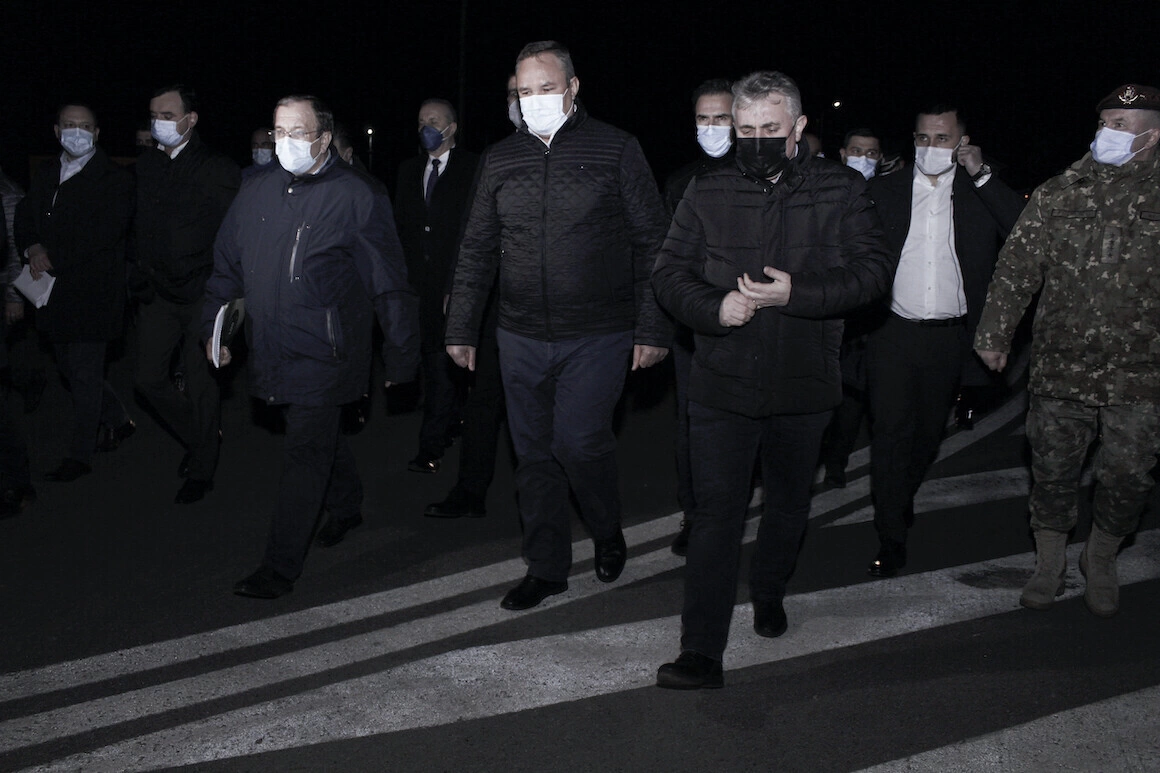
A commotion starts when an official convoy appears. Part of it: prime minister Nicolae Ciucă, ministers Vasile Dîncu, Alexandru Rafila, and Lucian Bode, as well as state secretary Raed Arafat. They get mobbed by journalists, but also by locals reprimanding them about not having done too much until now and not having any strategy for the current situation. “What have you done? You haven’t done a thing. Do you know who should’ve been here first? State institutions, not us, volunteers!,” someone yells at the prime minister. “You’re 36 hours late,” a voice is heard from the crowd. “Last night, when people started coming into the country, there was no one here waiting for them.”
Hidden behind a mask that covers most of his face, Ciucă doesn’t say much. He nods and thanks everyone. The convoy leaves the Siret checkpoint without anyone announcing any concrete measures.
“We’re lucky it was ok today, it was warm, but the cold is coming in tomorrow. Wait and see how these poor people will suffer then,” an old man sighs as he watches on, seemingly shocked.
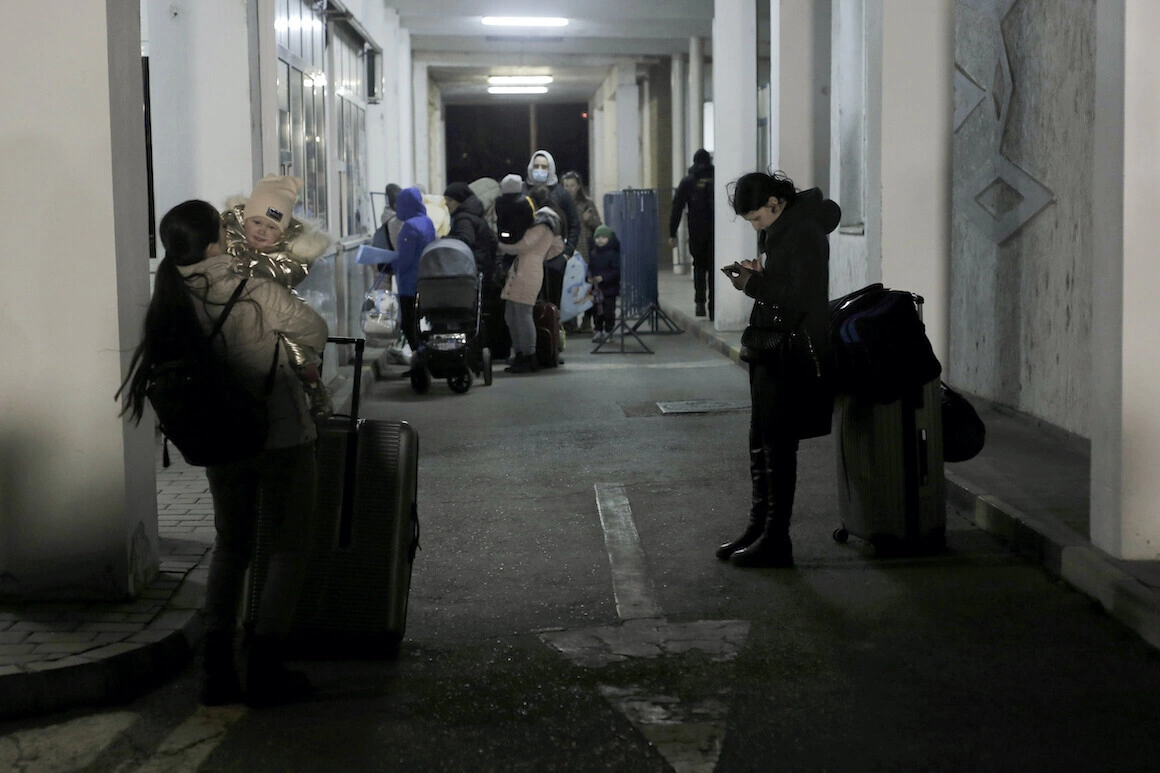
Somewhere to the left there’s a shop with a table in front of it, where, at this hour, some women from Chernivtsi are talking. They’re discussing the “Kyiv nightmare,” “that rapacious Putin,” but also those “American jerks.” “Where we’re from, in Chernivtsi, it wasn’t that bad yet when we left, but I wonder what those people in Kyiv are doing. Do they have enough shelters to hide in? We have some in Chernivtsi, underground, but they’re kind of god-forsaken, with no ventilation and whatever else is needed.”
Across the street from the shop, by the side of the road, in the dark, there’s Sveta, a woman in her mid- to late-twenties who’s come here from Chernivtsi with her daughter. “We’re waiting for someone to take us to Suceava,” Sveta smiles. “It was still so quiet in Chernivtsi when we left, but who knows what’s coming.” The little girl is circling the luggage and her mother tells her, “c’mon, it won’t be long till we’re out of here.” She takes out a fur-lined coat, which she puts over her child. “There. It’s better now, isn’t it?”
Translated from the Romanian by Ioana Pelehatăi. You can read the original here.




